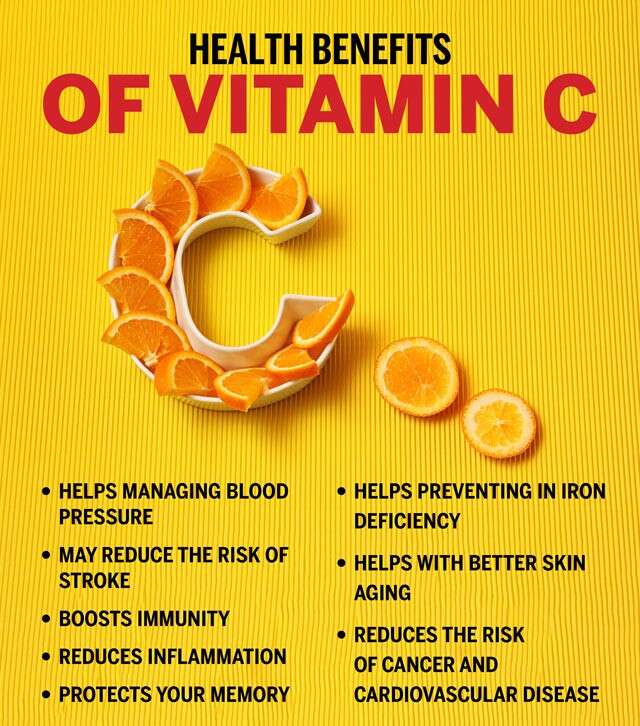The Benefits of Ascorbic Acid on Skin
Ascorbic acid, also known as Vitamin C, is a powerful antioxidant that offers numerous benefits for the skin. In this article, we will explore the remarkable advantages of ascorbic acid on the skin and how it can contribute to a healthier and more radiant complexion.
Enhanced Collagen Production
One of the primary benefits of ascorbic acid on the skin is its ability to stimulate collagen production. Collagen is a protein that provides structural support to the skin, keeping it firm and supple. With age, collagen levels naturally decline, leading to the formation of wrinkles and sagging skin. By incorporating ascorbic acid into your skincare routine, you can help boost collagen synthesis, resulting in firmer and more youthful-looking skin.
Powerful Antioxidant Properties
Ascorbic acid is a potent antioxidant that helps protect the skin from damage caused by free radicals. Free radicals are unstable molecules that can damage collagen, elastin, and other skin components, leading to premature aging and the formation of wrinkles. By neutralizing free radicals, ascorbic acid helps prevent oxidative stress and keeps the skin looking youthful and vibrant.
Brightens and Evens Skin Tone
Another remarkable benefit of ascorbic acid is its ability to brighten and even out skin tone. It inhibits the production of melanin, the pigment responsible for dark spots and hyperpigmentation. Regular use of ascorbic acid can help fade existing dark spots and prevent the formation of new ones, resulting in a more even complexion and a radiant glow.
Reduces the Appearance of Fine Lines and Wrinkles
Ascorbic acid is also known for its anti-aging properties. By promoting collagen synthesis, it helps plump up the skin, reducing the appearance of fine lines and wrinkles. Additionally, ascorbic acid helps improve skin elasticity, making it more resilient to the formation of new wrinkles. Regular use of ascorbic acid can lead to smoother, younger-looking skin.
Protects Against Sun Damage
Ascorbic acid offers some level of protection against sun damage. While it should not replace sunscreen, it can work in conjunction with it to enhance sun protection. Ascorbic acid helps neutralize free radicals generated by UV radiation, reducing the risk of sunburn and long-term skin damage. Incorporating ascorbic acid into your skincare routine can help fortify your skin’s natural defense against harmful UV rays.
Improves Skin Texture
By promoting collagen production and exfoliating the skin, ascorbic acid can improve overall skin texture. It helps fade acne scars, smooth out rough patches, and refine the skin’s surface, resulting in a smoother and more even complexion.

In summary, ascorbic acid offers a multitude of benefits for the skin. From stimulating collagen production and reducing the appearance of fine lines to brightening the complexion and protecting against sun damage, incorporating ascorbic acid into your skincare routine can help you achieve healthier, more youthful-looking skin. Take advantage of this powerful antioxidant and experience the transformative effects of ascorbic acid on your skin.
Frequently Asked Questions
1. What is ascorbic acid?
Ascorbic acid, also known as vitamin C, is a water-soluble vitamin found in various fruits and vegetables. It is a powerful antioxidant that offers numerous benefits to the skin.
2. How does ascorbic acid benefit the skin?
Ascorbic acid helps in the production of collagen, a protein that promotes skin elasticity and reduces the appearance of wrinkles. It also brightens the skin, evens out skin tone, and protects against environmental damage.
3. Can ascorbic acid help with skin discoloration?
Yes, ascorbic acid can help reduce skin discoloration and hyperpigmentation by inhibiting the production of melanin, the pigment responsible for dark spots. It can result in a more even skin tone.
4. Does ascorbic acid have any anti-aging effects?
Absolutely! Ascorbic acid is known for its anti-aging properties. It helps in the production of collagen, which reduces the appearance of fine lines and wrinkles, making the skin look more youthful.
5. Can ascorbic acid protect the skin from sun damage?
While ascorbic acid cannot replace sunscreen, it can provide some protection against sun damage. It neutralizes free radicals caused by UV radiation and helps repair damaged skin cells.
6. Is ascorbic acid suitable for all skin types?
Ascorbic acid is generally safe for all skin types. However, individuals with sensitive skin may experience some irritation or redness. It is recommended to perform a patch test before using it on a larger area.
7. How should I incorporate ascorbic acid into my skincare routine?
You can incorporate ascorbic acid into your skincare routine by using products like serums or creams containing vitamin C. Apply it in the morning before sunscreen for maximum benefits.
8. Can ascorbic acid help with acne and blemishes?
Yes, ascorbic acid has anti-inflammatory properties that can help reduce acne and blemishes. It also aids in the healing process of acne scars, promoting a clearer complexion.
9. Is it better to consume ascorbic acid or apply it topically?
Both consuming ascorbic acid through diet and applying it topically can benefit the skin. However, topical application allows for more direct and targeted effects on the skin.
10. Are there any side effects of using ascorbic acid on the skin?
Some individuals may experience mild irritation, redness, or dryness when using ascorbic acid on the skin. It is essential to start with a lower concentration and gradually increase usage to avoid any adverse reactions.




